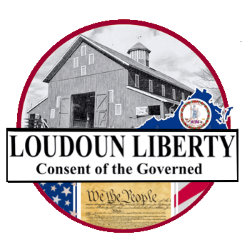Backward-looking ‘progressives’
People who call themselves “progressives” claim to be forward-looking, but a remarkable amount of the things they say and do are based on looking backward.
One of the maddening aspects of the thinking, or non-thinking, on the political left is their failure to understand that there is nothing they can do about the past. Whether people on the left are talking about college admissions or criminal justice, or many other decisions, they go on and on about how some people were born with lesser chances in life than other people.
‘Diversity’ is just another word for group quotas
Nothing so epitomizes the politically correct gullibility of our times as the magic word “diversity.” The wonders of diversity are proclaimed from the media, extolled in the academy and confirmed in the august chambers of the Supreme Court of the United States. But have you ever seen one speck of hard evidence to support the lofty claims?
The Left’s gambles with lives and livelihoods
Sometimes life forces us to make decisions, even when we don’t have enough information to know how the decision will turn out. The risks may be even greater when people make decisions for other people. Yet, there are some who are not only willing, but eager, to take decisions away from those who are directly affected.
Biography

Thomas Sowell was born in Gastonia, North Carolina on June 30, 1930.
As his father passed away prior to his birth, and his mother, a housemaid, had 4 children already, he was adopted and raised by his great aunt and her 2 grown daughters.
When he was 9 years old his family moved to Harlem, New York in search of better opportunity.
After dropping out of the prestigious Stuveysant High School for family reasons, he was drafted into the military in 1951 and served as a photographer in the Marine Corps during the Korean War.
On returning from military duty, he began attending night classes at Howard University, where he was encouraged to apply to Harvard.
In 1959, he graduated magnua cum laude from Harvard. The following year, he received his masters degree from Columbia University.
“Sowell cares about people. He believes that compassionate policy requires dispassionate analysis”
– Walter Williams
Despite studying under Milton Friedman and George Stigler, in 1961 Sowell considered himself a Marxist. It was his internship with the US Department of Labor in the summer of 1961 and his observations of the inefficiencies and perverse incentives within government that eventually dissuaded him from Marxism.
In 1968 he earned his PhD in Economics from the University of Chicago.
From 1963-1978, he held teaching positions in economics at various institutions including Rutgers, Howard, Cornell, Brandeis, UCLA, and Amherst College.
Since 1972, Sowell has published 56 books, over 70 essays, and more than 30 books reviews
In 1980, he was awarded the Rose and Milton Friedman Senior Fellow at the Hoover Institute at Stanford University, where he continues his writings and work to this day.
https://sowell.org/about




